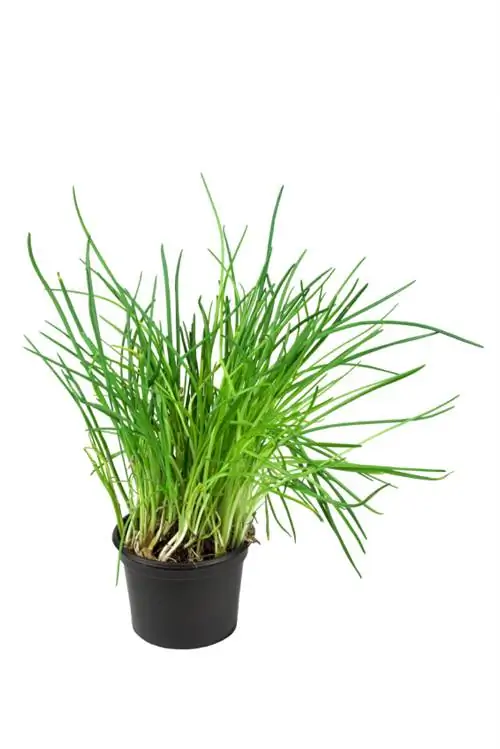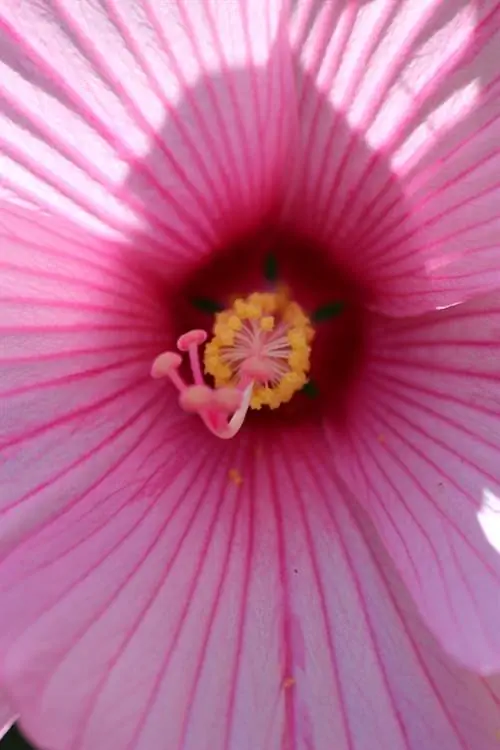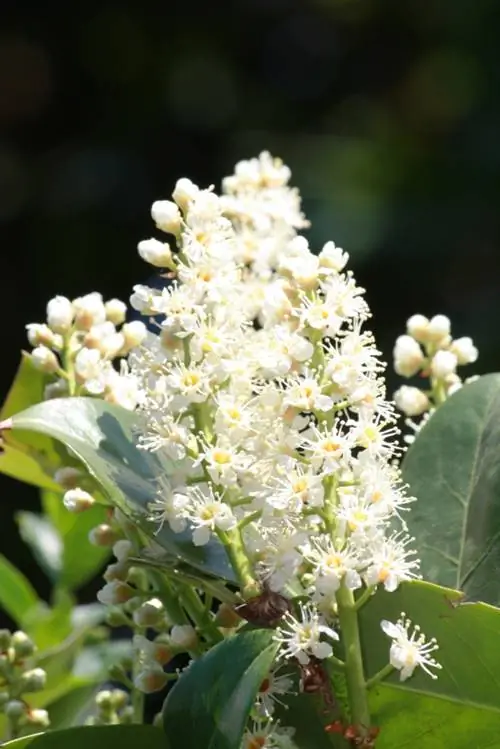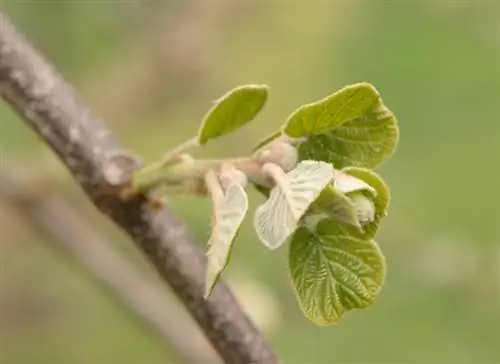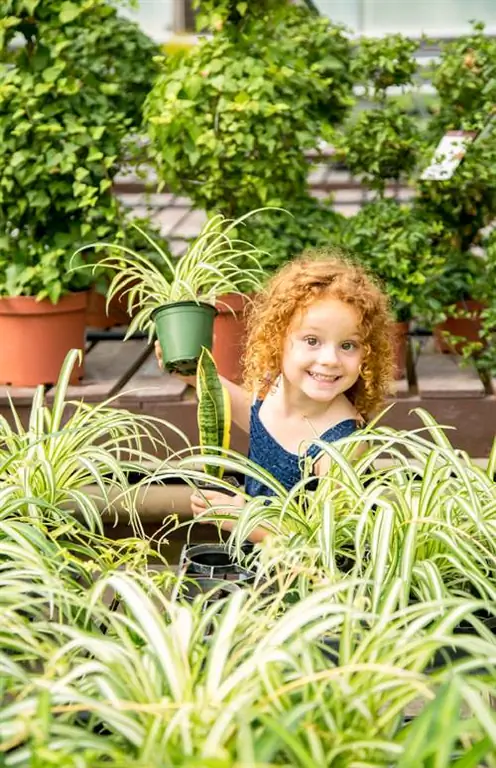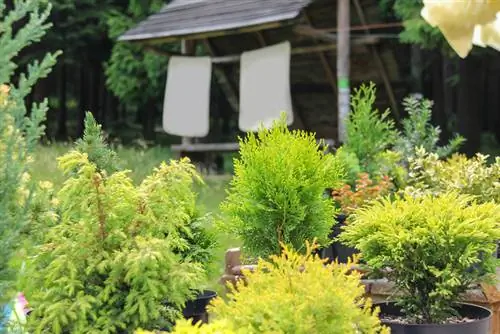- Author admin [email protected].
- Public 2023-12-16 16:46.
- Last modified 2025-01-23 11:20.
Chives can usually be grown in pots without any problems, provided they receive enough light and air. The chive pot should at least be placed on the windowsill, but an outdoor location is best - chives are not suitable as houseplants and will then die quickly.
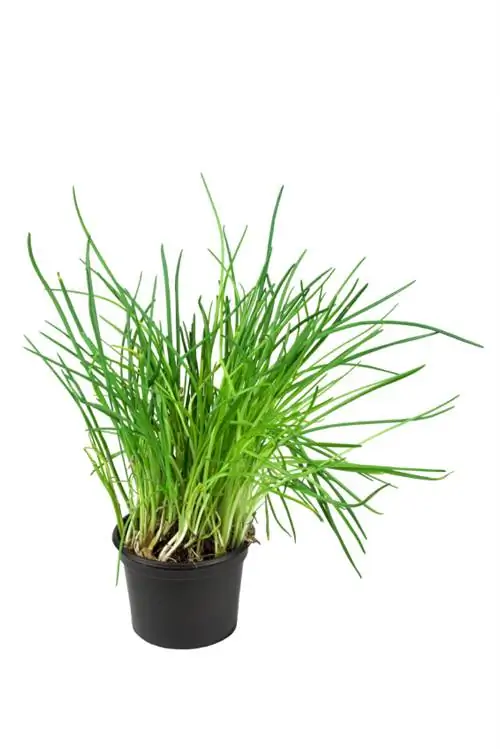
How do I properly care for chives in the pot?
Chives in pots thrive best when they are planted in humus-rich universal soil, watered regularly, fertilized every four weeks and not kept in waterlogged conditions. Preferred locations are sunny to partially shaded on balconies or window sills.
Repot the chives immediately
Most people get a chive by buying a herb pot. Many people then make the mistake of leaving the plant in a pot that is far too small, where it gets too little light and air and ultimately suffocates. For this reason, you should repot purchased chives into a larger planter as quickly as possible. This should definitely have holes at the bottom so that excess water can drain away. Although chives need a lot of water, they cannot tolerate standing water. Loose, humus-rich universal soil is suitable as planting soil - chives are heavy feeders. Older plants are repotted once a year to every two years.
Sowing chives in the pot
Of course, you can also grow chives yourself from seeds. However, make sure that chives are cold germinators - the seeds should be sown in early spring directly in the pot, which then belongs on the balcony. If you keep the substrate evenly moist, the first green tips will appear within approx. 14 days.
The right care
Chives need a lot of water, potted chives in particular must not dry out under any circumstances. The first yellow leaves are often a sign that the plant is too dry. The substrate should be kept evenly moist, but not wet. Waterlogging must be avoided at all costs. You should feed your chives with liquid vegetable or herb fertilizer about every four weeks - chives are heavy feeders, meaning they eat a lot of food. H. he needs a lot of nutrients. Cut the stalks about two centimeters above the ground; flower-bearing stalks are no longer edible. Flowers and buds can also be used in the kitchen. In winter, the chives can stay on the balcony, but the planter should be wrapped with fleece or something similar.
Tips & Tricks
If possible, always plant chives separately, i.e. H. alone in a pot. The plant needs a lot of space. If this is not possible, the herb harmonizes very well with parsley or basil - these have similar needs.

